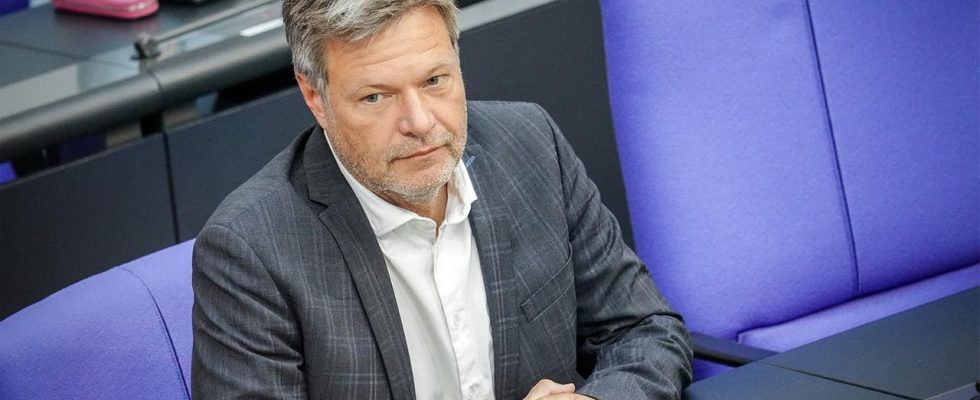There could be movement in the dispute over the planned heating law: Economics Minister Habeck was ready to make improvements. So he could imagine introducing the new rules from January initially only for new buildings.
After fierce debates about the heating law, Federal Economics Minister Robert Habeck announced proposals for improvements. “I take the criticism and social concerns of many very seriously,” said the Green politician to the newspapers of the Funke media group. “I want to make the law better.”
A staggered start would be conceivable
Habeck named several areas for improvement: “At the start time, I thought staggering was a possibility: we could start switching for new buildings on January 1, 2024. This then affects the new buildings that will be approved from January.” For existing buildings, he wants to accommodate the desire for more time, there the challenges are greater, says Habeck: “And given the concerns about the lack of craftsmen and delivery bottlenecks, a little more time is also a help.” How much more time should be agreed in the talks and in the parliamentary process.
Focus on expansion of heating networks
As a further aspect, Habeck mentioned more openness to technology when replacing the heating system: “You can heat in several ways in a climate-friendly way.” The draft law is already open to technology. “But we should strengthen that again, as the debate about wood pellets shows,” said Habeck. The minister announced “soon a package of measures for the expansion of local and district heating”. The heat planning law that has just been presented will also give heat networks a boost.
Habeck suggested synchronizing the transition periods better with the construction and expansion of a heating network. He also wants to examine improvements in the transition periods. “And it needs a pragmatic, unbureaucratic hardship regulation that ensures that nobody is asked to do anything that he or she cannot afford,” assured Habeck.
“Social Get support for climate protection”
“My aim is not only to unite the coalition factions behind this law, but also to get social support for climate protection,” said Habeck. Therefore, in the coming week, together with his new State Secretary Philipp Nimmermann, he will “have a series of talks with associations, among others, and then feed my suggestions again”.
Habeck said he understood well that the debate about the heating law was unsettling many people and that the draft raised questions and concerns. “Many want to make their contribution to climate protection and want to heat in a climate-friendly way, but they are concerned about how it can be done in concrete terms and whether they can afford it. And they deserve answers.”
Habeck demands willingness to compromise
Habeck emphasized that the clear signal to switch to renewable heating must come quickly. He expressed the wish to pass the law before the summer recess of the Bundestag. All sides now need to be willing to compromise “so that society is not further driven apart in this huge task, but rather to rally them behind affordable, pragmatic climate protection that is appropriate to the drastic nature of the climate crisis.”
On Tuesday, the FDP had prevented the draft law passed by the cabinet by Habeck and Building Minister Klara Geywitz (SPD) from being introduced in the Bundestag this week. In essence, it stipulates that new and replaced heating systems must be operated with at least 65 percent renewable energy from 2024. The coalition had jointly decided that the law should come into force on January 1, 2024, which now seems increasingly questionable.
Plans for heating summits
Yesterday Habeck announced that he wanted to meet representatives of the three traffic light groups SPD, Greens and FDP to discuss the planned heating law. According to the Federal Ministry of Economics and Climate Protection (BMWK), he will invite you to do so in a timely manner. The background is a questionnaire announced by the FDP leadership with around 100 questions about the law.
SPD leader Lars Klingbeil had called on the governing parties to quickly resolve the deadlocked heating dispute. “The public dispute has unsettled the population in a way that I have experienced with a few draft laws before,” he told the “Spiegel”. “We should all pull together and come to a conclusion quickly.” The FDP must provide answers as to what a compromise could look like, emphasized Klingbeil
At an event in Berlin, FDP leader and Federal Finance Minister Christian Lindner said his party did not want to prevent the heating law. “Doing nothing is not an option,” said Lindner. That is irresponsible because the climate goals have to be achieved. At the same time, however, one cannot demand the impossible from the citizens. The draft law still has to be worked on thoroughly, said Lindner. “The law is ready when it is good.”

